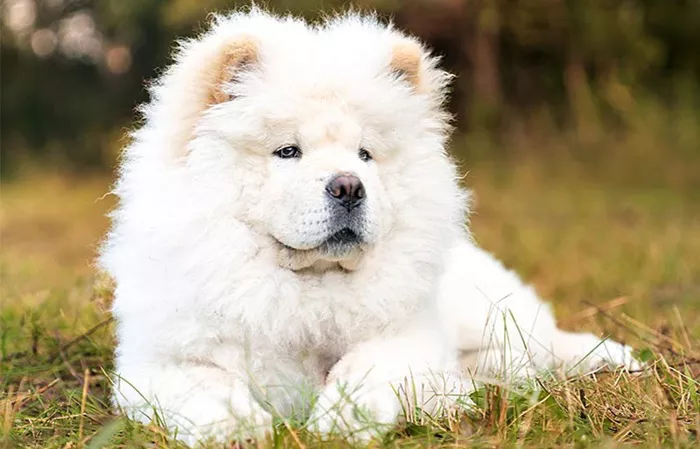The Chow Chow is a distinctive and ancient dog breed known for its lion-like mane, blue-black tongue, and aloof personality. Originating from China over 2,000 years ago, this breed has served various roles, including hunting, guarding, and companionship. But beyond its unique appearance and temperament, many potential dog owners wonder: Is a Chow Chow good for health?
This article explores the health implications of owning a Chow Chow, covering both the breed’s physical health risks and the mental and emotional benefits they provide. We’ll analyze their genetic predispositions, exercise needs, grooming requirements, and overall impact on an owner’s well-being.
Physical Health Considerations of Chow Chows
Genetic Health Risks in Chow Chows
Like all purebred dogs, Chow Chows are prone to certain hereditary health conditions. Prospective owners should be aware of these risks to ensure proper care and early intervention.
Common Health Issues in Chow Chows:
- Hip and Elbow Dysplasia: A joint malformation leading to arthritis and mobility issues.
- Entropion: A condition where eyelids roll inward, irritating the cornea.
- Hypothyroidism: A thyroid disorder causing weight gain, lethargy, and skin problems.
- Patellar Luxation: Dislocation of the kneecap, leading to lameness.
- Bloat (Gastric Torsion): A life-threatening stomach condition requiring emergency care.
Preventive Measures:
- Regular vet check-ups
- Genetic testing before breeding
- A balanced diet and controlled exercise
Chow Chow Lifespan and Longevity
The average lifespan of a Chow Chow is 9 to 15 years, depending on genetics, diet, and healthcare. With proper management, some Chow Chows live beyond 15 years.
Factors Influencing Longevity:
- High-quality nutrition
- Regular exercise (without overexertion)
- Early detection of health issues
Mental and Emotional Health Benefits of Owning a Chow Chow
While Chow Chows have some health risks, they also offer significant psychological benefits to their owners.
Chow Chows as Emotional Support Animals
Despite their independent nature, Chow Chows form strong bonds with their families. Their loyalty and calm demeanor can provide:
- Stress relief: Petting a dog lowers cortisol levels.
- Companionship: Reduces feelings of loneliness.
- Routine and responsibility: Encourages a structured lifestyle.
Chow Chows and Mental Health
Studies show that dog ownership can:
- Decrease symptoms of depression and anxiety
- Improve social interactions (as Chow Chows attract attention)
- Encourage outdoor activities (moderate walks)
However, their stubbornness requires patient training, which can also serve as a mental exercise for owners.
Exercise and Activity Needs for a Healthy Chow Chow
Moderate Exercise Requirements
Chow Chows are not highly active dogs, but they still need daily exercise to maintain health.
Recommended Activities:
- Short walks (20-30 minutes, twice daily)
- Light play sessions (avoid overheating due to their thick coat)
- Mental stimulation (puzzle toys, obedience training)
Risks of Overexertion
Due to their brachycephalic (short-nosed) traits and dense fur, Chow Chows are prone to:
- Heatstroke: Avoid intense exercise in hot weather.
- Joint stress: Excessive running can worsen hip dysplasia.
- Grooming and Hygiene for a Healthy Chow Chow
Coat Maintenance
Chow Chows have a double coat that requires regular grooming:
- Brushing (3-4 times a week): Prevents matting and shedding.
- Bathing (every 6-8 weeks): Use dog-friendly shampoos.
- Seasonal shedding: More frequent brushing during shedding seasons.
Dental and Skin Care
- Teeth brushing (2-3 times a week): Prevents periodontal disease.
- Skin fold cleaning: Prevents infections in facial and body folds.
Nutritional Needs for Optimal Chow Chow Health
Best Diet for Chow Chows
A balanced diet is crucial to prevent obesity and joint issues.
Recommended Food Choices:
- High-quality dry kibble (with glucosamine for joints)
- Lean proteins (chicken, fish, turkey)
- Limited treats (to avoid weight gain)
Foods to Avoid
- Chocolate, grapes, onions (toxic to dogs)
- High-fat foods (can trigger pancreatitis)
- Excessive carbohydrates (leads to obesity)
Are Chow Chows Good for Families?
Compatibility with Children and Other Pets
- Good with older children (if socialized early)
- May be aloof or dominant with other pets
- Supervised interactions recommended
Ideal Owners for Chow Chows
- Experienced dog owners (due to their stubbornness)
- People with a calm household (they dislike chaos)
- Those willing to commit to grooming and training
Conclusion
Owning a Chow Chow can be both rewarding and challenging. While they have some breed-specific health risks, their companionship offers mental and emotional benefits. With proper care—regular vet visits, a good diet, moderate exercise, and grooming—a Chow Chow can be a healthy and loyal companion.
If you’re prepared for their needs, a Chow Chow can positively impact your well-being while leading a fulfilling life themselves.
Related topics:
How Can I Transition My Dog to a Healthy Diet?


